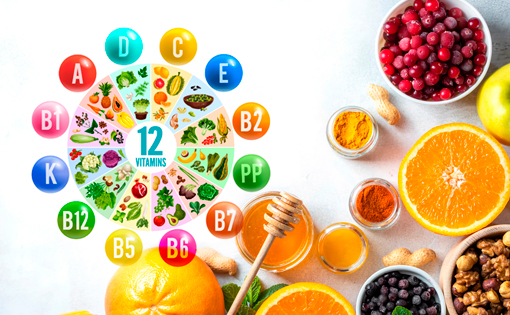BY MARK KINI
I keep seeing “Balance of Nature” commercials that promote taking one capsule to make all your aches and pains go away and you will live happily ever after. This is marketing at its best and Balance of Nature isn’t unique—many nutrition products depict this same fantastical theme.
 But the reality is, no one pill, serving, or drink alone will deliver good health. After all, if there was one easy and painless solution to staying slim, active, and free of major ailments, wouldn’t almost everyone be in prime condition? Your well-being derives from eating healthfully, exercising, getting proper rest, and dealing with any medical issues when they arise, and yes, good genetics also play a role.
But the reality is, no one pill, serving, or drink alone will deliver good health. After all, if there was one easy and painless solution to staying slim, active, and free of major ailments, wouldn’t almost everyone be in prime condition? Your well-being derives from eating healthfully, exercising, getting proper rest, and dealing with any medical issues when they arise, and yes, good genetics also play a role.
Staying healthy and feeling great often involves more than just eating a balanced diet. Sometimes, our bodies need extra support from vitamins, minerals, and supplements, especially if you aren’t getting them from what you consume. Here’s a simple guide to understanding how these can benefit you. As always, talk with your medical professional before adding these supplements to your schedule, especially if you have current health issues and/or are taking medications that could be impacted by use.
1. VITAMINS
❱ Vitamin C: Known for its immune-boosting properties, vitamin C helps protect cells and keeps your skin healthy. It’s found in fruits like oranges and strawberries.
❱ Vitamin D: Essential for bone health, vitamin D helps your body absorb calcium. You can get it from sunlight or foods like fish and fortified dairy products.
❱ Vitamin B12: Important for energy and red blood cell formation, vitamin B12 is mainly found in animal products like meat, eggs, and dairy. Vegetarians/vegans can get from fortified foods (nutritional yeast and tempeh are popular go-to sources), but they might need to take a supplement to get enough.
2. MINERALS
❱ Calcium: This mineral is crucial for strong bones and teeth. Dairy products, leafy greens, and fortified alternatives are good sources.
❱ Iron: Needed for making red blood cells, iron helps transport oxygen throughout your body. You can get it from meats, beans, and spinach, to name a few.
❱ Magnesium: Supports muscle and nerve function, and helps regulate blood sugar levels. It’s present in nuts, seeds, and whole grains.
3. SUPPLEMENTS
❱ Protein Powder: It's a convenient way to increase your protein intake, which is important for muscle repair and growth. It’s ideal for people who need extra protein, such as athletes or those with specific dietary needs.
❱ Amino Acids: These are the building blocks of proteins. Supplements like branched-chain amino acids (BCAAs) can help reduce muscle soreness and improve exercise recovery.
❱ Creatine: Often used by athletes to boost strength and muscle mass, creatine helps produce energy during high-intensity workouts. It’s typically found in red meat and fish, but supplements can be more convenient for some.
Eating real, whole foods as close to nature (and home) as possible is the most effective way to ensure you get adequate protein, vitamins, and minerals. Fresh fruits, vegetables, lean meats, fish, nuts, and whole grains provide a diverse range of essential nutrients that work together to support overall health. By focusing on a balanced diet rich in these natural foods, you can meet your nutritional needs without relying solely on supplements. Whole foods not only offer the vitamins and minerals your body needs but also come with additional benefits like fiber and antioxidants, which support long-term well-being and prevent deficiencies. In fact, the American diet is often deficient in fiber consumption, which is critical to gut and metabolism regulation.
While vitamins and minerals from a well-rounded diet are essential, supplements can help fill in any gaps. With the right balance, these nutrients can support a healthier, more energetic you. [CD1024]
Mark Kini is the President & CEO of Boston Chauffeur. He can be reached at mark@bostonchauffeur.com. Follow me bostonfitexec.

